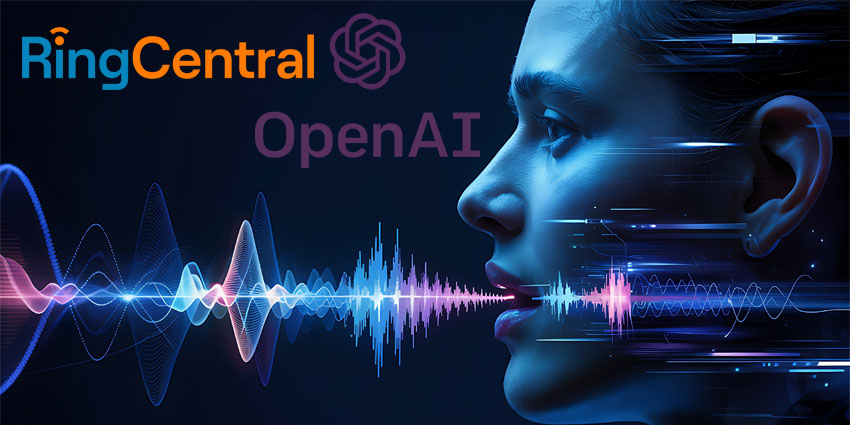Imagine being able to give doctors and nurses vast amounts of time back to deliver frontline services.
Less note-taking, less form-filling, less patient record updating; more diagnosing, more treating, more caring.
Thanks to Artificial Intelligence, all of that is now possible: the most modern of technologies enabling another truly transformational step-change in the way the world works.
Thanks to the conversation capture and analysis of all conversations, staff across all departments of a hospital are able to work smarter – summarising meetings, identifying actions, discerning sentiment, and enabling the flagging of key moments and insights to inform better decision-making.
The net result? Dramatic improvement of communications, operations, patient experience, and efficiency. All healthcare organisations (and their IT service providers) must do is pick a partner with the solution to make it all happen.
“While there is a vast array of AI-powered technologies impacting hospitals and medicine in general, from consultations and diagnoses to machine-calculated precision medicine, one of the most overlooked yet easily deployable is Conversation Intelligence,” says Nick Atkin, the Global Head of Solutions at Dubber, the global provider of conversation intelligence platform technology that uses Natural Language Understanding (NLU) to turn rich conversational content into valuable insights.
“Hospitals are complex information ecosystems that rely on fast and accurate communication. Verbal interactions between patients and staff will always be at the heart of healthcare, and the insights generated through Conversation Intelligence have the potential to help reduce risk, enhance care quality, improve employee morale, and boost patient satisfaction.
“Integrated into existing communication service providers’ networks, our solutions can help ensure those conversation details are accurately and comprehensively captured and available as a core part of a hospital’s information systems. This delivers transformative benefits across hospital operations, staff and patients for the future.”
Indeed, of all organisations, hospitals are among the most reliant on conversations in order to function. Whether these are operational or clinical interactions, a vital amount of hospital communication occurs verbally. Traditionally, this has presented a major challenge as the information from these conversations could only be captured by incomplete manual notes or hard to access audio files. With overloaded staff and stressed patients, key details from conversations can fall through the cracks and contribute to confusion over details, poor patient experience, disputes, and lost productivity.
Conversely, accurate call transcripts can mitigate the issues of information loss from advising patients over the phone, minimising communication errors and preventing disputes. In turn, AI-generated summaries linked back to accessible media can form part of a more complete patient case record, informing and improving future advice.
Administrators can be alerted when calls contain moments of negative sentiment and complaints detected by AI, ensuring these receive proper attention and resolution. And, with key moments flagged, healthcare organisations can save time as critical data is brought to them and processed into insights for immediate action, instead of having to proactively search and sift through the data.
“Applied correctly, Conversation Intelligence can create the capability for an always up-to-date patient synopsis from all their communications, accessible to any relevant hospital staff member,” says Atkin.
“This could dramatically improve continuity of care and the speed of patient consultations and diagnoses.”
Huge benefits exist for the healthcare workers tasked with frontline delivery too.
Currently, switchboard operators often route calls to the wrong department due to overload or limited context about a patient issue. This frustrates patients, and at times can result in verbal abuse of staff. Hospitals know this is a problem, but they often do not have sufficient data to inform a solution.
With aggregated cross-departmental Conversation Intelligence, hospitals can highlight which departments are receiving complaints, providing administrators with the data they require to inform policies and training to improve operators’ ability to route calls correctly, as well as detect, flag and help prevent verbal abuse.
Likewise, Conversation Intelligence could detect a rise in complaints about wait times in a certain unit or department, prompting administrators to investigate or reallocate resources to resolve a bottleneck. By processing conversations faster than human workers, AI enables continuous improvement through data analytics.
“For nurses, Conversation Intelligence could address one of their biggest frustrations – excessive administrative work,” says Atkin.
“They can spend hours of their shift doing paperwork instead of caring for patients. By automatically generating notes and clinical details from conversations, nurses can gain back precious time to focus on patient care. Similarly, doctors lose significant productivity to administrative tasks, which Conversation Intelligence can optimise through automated documentation and prioritisation.”
It seems Conversation Intelligence is the perfect cure for healthcare systems’ constant struggle against relentlessly-rising demand on their services.
And THAT is something worth talking about…







